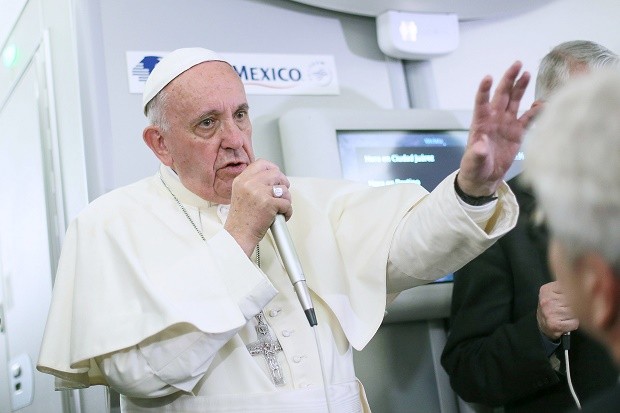VATICAN CITY, Holy See — Pope Francis on Friday warned European Union leaders the bloc risks dying without a new vision of the future based on the principles of solidarity on which it was founded.
In a hard-hitting message on the eve of the troubled EU’s 60th anniversary celebrations in Rome, the Argentine pontiff spelled out the many problems facing a Union soon to lose Britain from its ranks.
And while he said problems such as the economic and migration crises and the rise of populism could be overcome by the remaining 27 members, he said they could prove fatal if not treated.
READ: ‘Disintegrating’ EU has nothing to celebrate — ex-Greek minister
“When a body loses its sense of direction and is no longer able to look ahead, it experiences a regression and, in the long run, risks dying,” he said in a speech to EU leaders at the Vatican.
Francis said the leaders of the six countries who founded the European Economic Community on March 25, 1957 had shown faith in the future after the destruction of World War II.
“They did not lack boldness, nor did they act too late,” he said.
“It was clear from the outset, that the heart of the European political project could only be man himself.
“The first element of European vitality must be solidarity,” he added, describing the principle as “the most effective antidote to modern forms of populism.”
Deep divisions
Francis added: “That spirit remains as necessary as ever today” as “centrifugal” pressures mount and the founding ideals are forgotten.
Some EU governments and a significant bloc in the European Parliament agree with the pope’s desire for the EU to put more emphasis on combatting social injustice.
“Now is the time to make our welfare model truly European,” Italian Prime Minister Paolo Gentiloni said at Friday’s meeting with the pontiff.
But there is no consensus among the 27 on this, nor on almost any other issue to do with the bloc’s next steps.
A “Rome declaration” due to be adopted on Saturday papers over deep divisions over founding member states France and Germany’s desire to move to a multi-speed union, allowing some countries to forge closer ties, for example in the military sphere, while others lag behind.
On social policy, the declaration restricts itself to recalling that the bloc is one with “unparalleled levels of social protection and welfare,” according to an approved final draft seen by AFP.
Francis also upbraided the modern-day EU for forgetting the damage the Cold War division of Europe had done — in a reference to the barriers he sees the EU erecting to migrants arriving from Africa, the Middle East and Asia.
‘No peace without jobs’
“What efforts were made to tear down that wall (the iron curtain)!” he said. “Yet today the memory of those efforts has been lost.
“Forgotten too is the tragedy of separated families, poverty and destitution born of that division.
“Where generations longed to see the fall of those signs of forced hostility, these days we debate how to keep out the ‘dangers’ of our time: beginning with the long file of women, men and children fleeing war and poverty, seeking only a future for themselves and their loved ones.”
Francis said the EU needed to recover a sense of community and close the gap between its citizens and institutions “often perceived as distant and inattentive.”
He went on to underline how the long peace in Europe, generally seen as the greatest achievement of the EU, had been underpinned by a new social settlement and high employment levels.
“There is no peace without employment and the prospect of earning a dignified wage,” he said.
“There is no peace in the peripheries of our cities, with their rampant drug abuse and violence.
“Europe finds new hope when she is open to the future. When she is open to young people, offering them serious prospects… When she invests in the family… when she respects the consciences and the ideals of her citizens.” CBB
